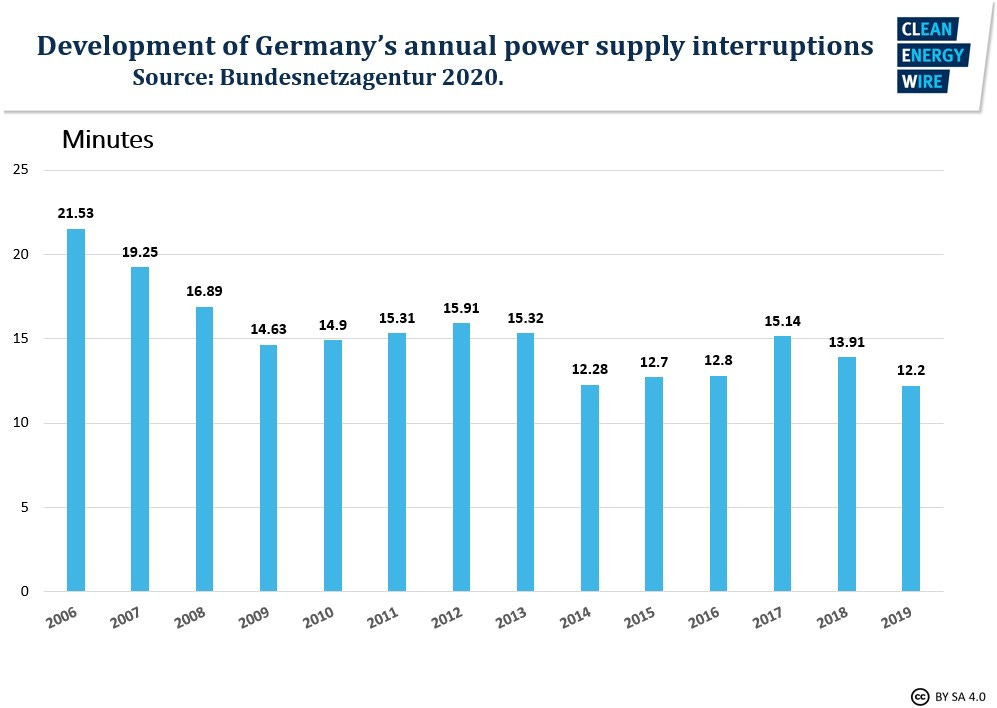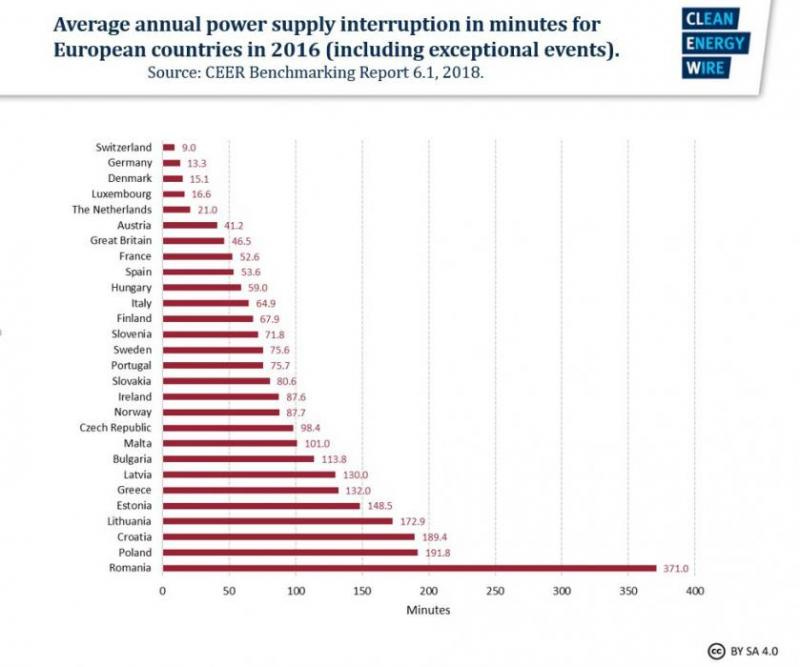Common misconceptions about Germany's energy transition: No, it did not increase carbon emissions, or reliance on coal, or Russia. It is not increasing blackouts.
Contrary to popular belief, it has been a success and offers other countries a model for a path forward.
Every time Germany and energy or electricity is mentioned, three things happen: First, people will mention that they replaced shut down nuclear with coal, then they state that German carbon emissions are increasing, but those making these claims inevitably expose themselves for being either stupid or lying.
Lets look at the data.
Germany’s Energiewende, or Energy Transition is based on the earliest mentions by the German Öko-Institut, which called for a replacement of fossil and nuclear energy with renewable energy, and claiming such was possible while increasing economic output. A significant focus of it was the democratization of energy whereby the centralized generation model where a few large utilities operate in an oligopoly would be replaced by more distributed renewable energy. This part will be the subject of a later post. For now, we will crush the lies of the Energiewende’s critics
Lie 1: German carbon emissions have increased since the nuclear plants were shut down. Fact check: German overall carbon emissions are down, including in the electricity sector.
From Clean Energy Wire based on German government data
Since 2002 when the nuclear phaseout was codified into law, both overall German CO2 emissions have gone down, as well as emissions from the electricity sector.
Lie 2: Germany shut down nuclear reactors and replaced that power generation with coal Fact check: False: Germany replaced nuclear with renewable energy, not coal. Coal actually declined at the same time.
From 2002, German nuclear production declined from 156.3 TWh to 65.4 TWh in 2021. During this time wind and solar increased from 19 TWh to 161.5 TWh. Or the 90.9 TWh decrease in nuclear power was offset by a growth of 142.5 TWh in solar + onshore +offshore wind. At the same time coal, both hard and lignite decreased from 251.9 TWh to 146.5 TWh for a reduction of 109.4 TWh. So Germany reduced both coal and nuclear at the same time, coal did not grow, and the coal reduction was actually larger than the nuclear reduction.
So what about gas? This did very slightly increase from 40 TWh in 2002 to 52.2 TWh in 2021. A growth of 12.2 TWh, vs the 109.4 TWh reduction in coal. So Germany reduced coal by almost 10x as much as gas grew.
Did this increase reliance on Russia? No, it decreased it.
Of the coal that is burned in Germany, the lignite is domestically produced. Hard coal is imported for use in the electricity sector as German hard coal is economically unfavorable.
Of the hard coal Germany imports (111.4 TWh in 2002 decreasing to 47 TWh in 2021, a decrease of 64.4 TWh) 45.4% of it came from Russia, or 29.2 TWh worth.
29.2 TWh of reduction of Russian coal imports, vs 12.2 TWh increase of Russian gas imports.
The Energiewende made Germany less dependent on Russia than if it had never taken place!
There is a case that Germany could have reduced coal instead of nuclear more, had it not chosen to phase out nuclear. This will be the subject of another post, but this misinformed take ignores the political realities in Germany at the time the plan was set into motion. Essentially, there would have been no political will to phase out coal and replace by renewables due to the coal lobby at the time. Germany being the first mover and investing in renewables created economies of scale that reduced the price of renewables to the point their replacing of coal was inevitable. Germany sacrificing nuclear gave the world cheap wind and solar electricity. This will be another post but this article is worthy starting reading on this subject.
Now lets debunk another lie about Germany’s electricity sector.
Lie 3: Germany is at risk of blackouts due to the growth of renewable energy. False: Germany has one of the most reliable grids in Europe (more so than nuclear France) and reliability has increased as renewable energy has grown.
This lie appears quite popular, so lets debunk.
As renewable energy has grown in Germany, downtime (measured in minutes of blackout per customer) has decreased from 22 min in 2006, to 12.2 min in 2019.
How does this compare to other countries in Europe?
It is the second lowest in Europe, and lower than nuclear France
So if you see someone (or a green chicken on substack) making such claims, you can safely discard their opinions as either misinformed, or lying.
A latter post will discuss the propagandists and their ties to the nuclear industry or fossil industry who appear paid to spread falsehoods about Germany and the Energiewende.





"a green chicken on substack"
He went paywall anyway, and now just tells his patrons what they like to hear.
We all know who is "a green chicken on substack" :P
Honestly this article helps to clear some doubt that I had in my mind from the green chicken articles...